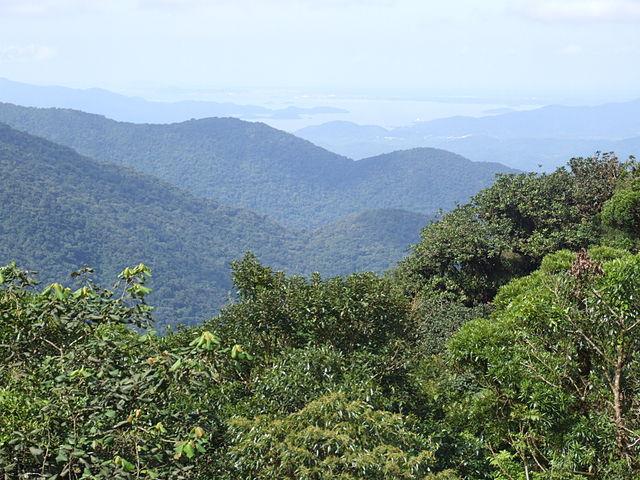
Brazil’s forests have long been the foundation of the country’s culture, dating back to indigenous cultures long before the Portuguese arrived. The rich variety in woods is in part why Brazilian design has earned affection across the world, from Oscar Neimeyer’s modernist buildings and interiors in Brasília to furniture designers such as Jean Gillon, Sergio Rodrigues and Joaquim Tenreiro. But the demand for Brazilian woods such as cumaru, ipe, jatoba, mahogany and rosewood contributed to the decimation of forests. And the oft-unchecked development in regions such as the Amazon and cerrado have exacerbated Brazil’s deforestation problem.
“We’ve been renowned for our hardwoods for over 100 years,” said Bruno Mariani before an audience at the IUCN Congress in Honolulu earlier this week, “but now our forests are facing problems such as the failure to prevent fires and stopping cattle from eating forest regrowth.”
To that end, Mariani launched Symbiosis Investments in 2008. Part social enterprise, part agribusiness, and part reforestation venture, Mariani and his colleagues offer a market-based approach that could thrive as a model across the world. Symbiosis runs a fully integrated operation that restores forests while providing a reliable and profitable supply of timber.
The company controls the entire cycle of wood production, starting with seed selection and storage, continuing with the management of its native species trees in the Trancoso region of Brazil, and finally its harvested products. The company’s managed forest, located halfway between Rio de Janeiro and Salvador da Bahia, is in the middle of the country’s Atlantic rain forest region. Home to over 3,000 plant species, dozens of birds and 35 mammals, over 90 percent of the region’s original forests have been lost due to rapid logging and unchecked development.
Mariani and his business partners saw an opportunity to heal the local environment while producing a material that is still very much in demand. The company first started with a 1,500 acre (5.8 square miles) concession. Since then the company has expanded with an extensive seed generation and storage operation, nurseries and the cultivation of a variety of native trees that are in demand for their strength, aesthetics and resilience. During a IUCN panel, Mariani argued that his company’s success shows that growing trees on carefully managed lands makes more business sense than harvesting them from virgin forests.
Furthermore, when managed sustainably and responsibly, Mariana posited that wood as a building material has a far smaller carbon footprint than building products such as concrete and steel. And from an conservation perspective, this land can also serve as a viable carbon sink while offering job opportunities for locals. “We’ve proven that we can make a profit while respecting the land,” said Mariani, “and our model is a viable option for private landowners.”
Symbiosis currently manages about 100,000 hectares of forests, most of which was land damaged by cattle ranching. The company is currently seeking more investors so that it can scale up its plans across the 1,500 square mile Atlantic Forest, which extends into as far inland as the border areas Brazil shares with Argentina and Paraguay.
Image credit: Deyvid Setti/WikiCommons
Disclosure: Asia Pulp and Paper (APP) is funding Leon Kaye’s trip to Hawaii. Neither the author, nor Triple Pundit, were required to write about the experience.

Leon Kaye has written for 3p since 2010 and become executive editor in 2018. His previous work includes writing for the Guardian as well as other online and print publications. In addition, he's worked in sales executive roles within technology and financial research companies, as well as for a public relations firm, for which he consulted with one of the globe’s leading sustainability initiatives. Currently living in Central California, he’s traveled to 70-plus countries and has lived and worked in South Korea, the United Arab Emirates and Uruguay.
Leon’s an alum of Fresno State, the University of Maryland, Baltimore County and the University of Southern California's Marshall Business School. He enjoys traveling abroad as well as exploring California’s Central Coast and the Sierra Nevadas.














